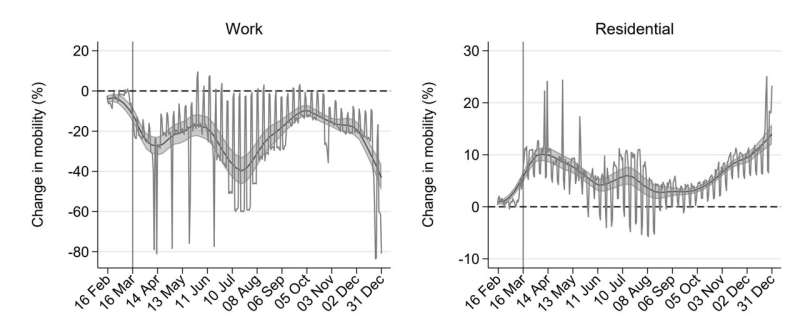This article has been reviewed according to Science X's editorial process and policies. Editors have highlighted the following attributes while ensuring the content's credibility:
fact-checked
trusted source
proofread
Researchers illustrate the media's power to affect behavioral change during COVID-19 in Sweden

Increased media coverage of COVID-19 led to more individuals taking preventive measures such as hand washing, social distancing, and wearing masks, new research from the Stockholm School of Economics and Jönköping University shows. This highlights the important role that accurate and timely reporting plays in promoting public health measures during a pandemic.
In a recent working paper, researchers Marcel Garz (Jönköping University) and Maiting Zhuang (Stockholm Institute of Transition Economics (SITE) at the Stockholm School of Economics) collected a unique dataset of 200,000 newspaper articles about the COVID-19 pandemic from Sweden—one of the few countries that did not impose mandatory lockdowns or curfews but largely relied on voluntary social distancing.
They show that mentions of COVID-19 significantly lowered the number of visits to workplaces and retail and recreation areas, while increasing the duration of stays in residential locations. The impacts are largest when COVID-19 news stories were more locally relevant, more visible and contained simple and explicit public health advice. These results have important implications for the design of future public communication strategies that aim to foster behavioral change.
"We found little evidence of media fatigue or a preference of opinion pieces relative to factual reporting when it comes to COVID-19 in Sweden," says Maiting Zhuang, Assistant Professor at SITE.
Positive effect of local news media
While there has been much discussion about misinformation and media bias during the pandemic, the research shows a positive effect of the local news media in terms of encouraging voluntary adherence to public health measures. More broadly, the study adds an important dimension to the policy discussion about the decline of local news, beyond local political accountability and community participation.
The researchers found that local news remains an important source of local information, and that personally relevant information is more important for behavioral change. A lack of trusted local media could adversely affect compliance with government recommendations during a crisis, as well as a range of other campaigns, such as those encouraging the take-up of vaccines or adoption of more environmentally friendly behaviors.
More information: Working paper: www.hhs.se/en/about-us/news/si … vidence-from-sweden/
Provided by Swedish Research Council





















